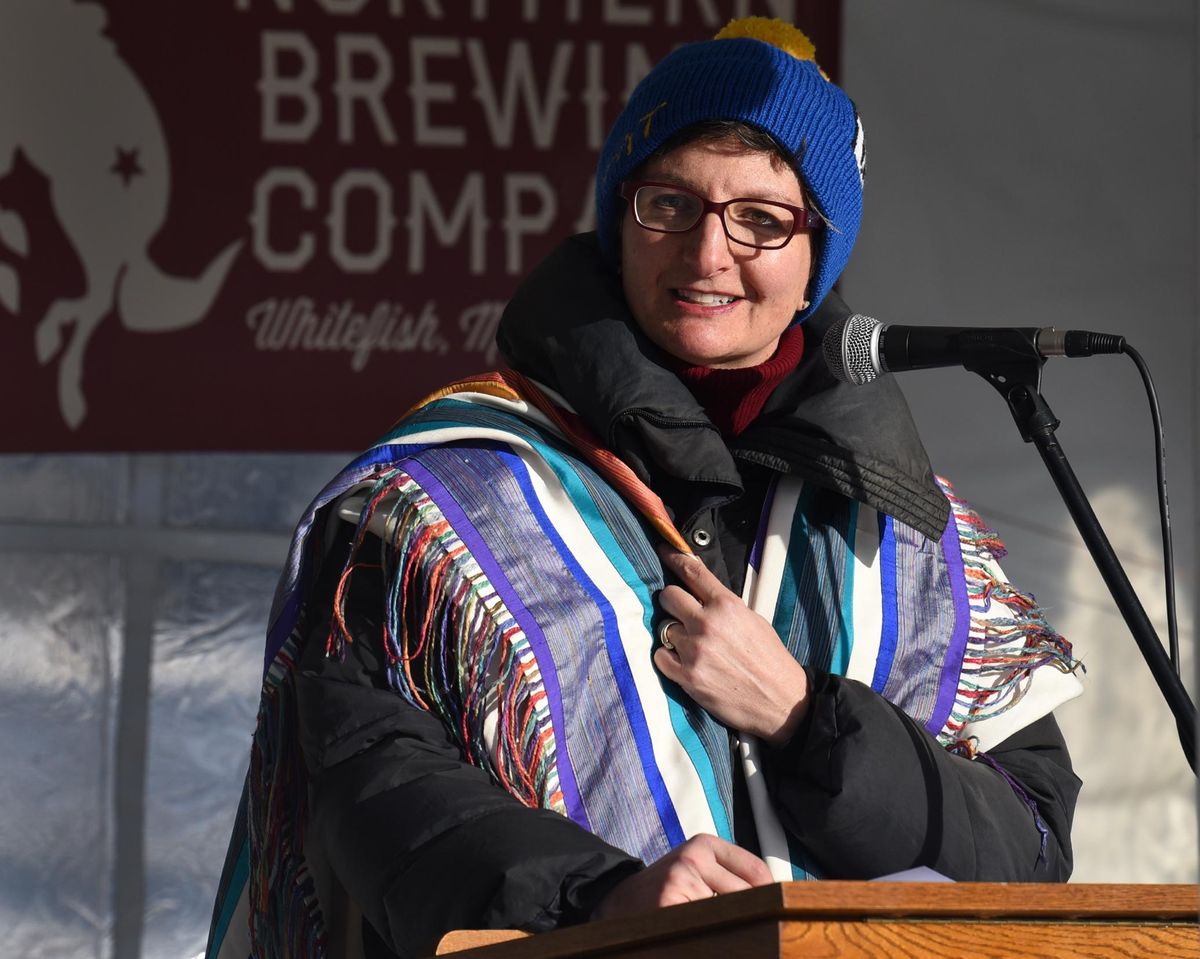A Montana rabbi met hate in Whitefish and found community support

After two summer vacations in Whitefish, Montana, Francine Roston and her family became so enamored with the remote mountain town that they decided to make it their permanent home.
They moved from New Jersey in 2014, and Roston, a longtime conservative rabbi, set about working to unite the small Jewish communities of Montana’s Flathead Valley.
Then, in December 2016, the national spotlight fell on a Whitefish resident and influential racist named Richard Spencer, and the town became the target of an anti-Semitic “troll storm” in which the Rostons and their neighbors received threats and had their home addresses shared online. At the time, there were only three Jewish families in the resort town of 7,000 people.
Francine Roston, who is scheduled to speak Saturday at Gonzaga University, said she had never heard of Spencer when she moved to Whitefish. But now she sums up his ideology in a few words: “hatred, anti-Semitism, misogyny and white supremacy, with pseudo-intellectual language to dress it up.”
The hateful campaign in Whitefish was led in part by Spencer, who boasts that he coined the term “alt-right,” and former KKK leader David Duke.
But it was Andrew Anglin, the publisher of the Daily Stormer, a neo-Nazi website, who called for an armed march in the streets of Whitefish, claiming that Jews, “a vicious, evil race of hate-filled psychopaths,” had lobbed verbal attacks at Spencer’s mother.
Sherry Spencer owned the building where her son runs his innocuously named “think tank,” the National Policy Institute, and in a TV news story in December, a local Jewish real estate agent called on her to shut it down.
Roston will be the keynote speaker at a three-day conference hosted by Gonzaga’s Institute for Hate Studies. Her speech will begin at 7 p.m. Saturday in the Hemmingson Center. Tickets are free for Gonzaga students and $10 for nonstudents. They can be purchased on the institute’s website.
In an interview, Roston said she will share what it was like to fall victim to vicious cyberattacks, but her main goal is “to share and promote the positive responses that we experienced in our community.”
Whitefish residents turned out in droves to support their Jewish neighbors, even though sympathizers would be subjected to the same onslaught of hateful emails, phone calls, social media posts and Yelp reviews. They formed a group called Love Lives Here to oppose neo-Nazis, and sent gift baskets as a form of consolation. Roston called them “baskets of love.”
And after the Daily Stormer called on neo-Nazis to march in Whitefish, a bipartisan group of Montana’s state and federal leaders signed a statement condeming it. The march, scheduled for January, never happened.
“From local neighbors to city officials to our state elected representatives,” Roston said, “we heard the message loud and clear that we were being supported, and that hatred and these kinds of attacks were unwelcome in our town.”
Roston still occasionally crosses paths with Spencer, who lives part time in Whitefish. And she still worries about the treatment of minorities in the United States.
“There are statistics on the increase of bias incidents since November 2016 in schools and cities across the country,” she said. “It’s upsetting and disconcerting, and it is an opportunity, always, for education.”
Roston said she’s not interested in stifling speech but wants to expose threats of violence for what they are.
“I believe that Richard Spencer has the right to speak in public and promote his viewpoint, no matter how hateful and disgusting it is. What I am concerned about is when these hateful philosophies are used to fuel harassment, cyberattacks and physical attacks,” she said. “I’m operating under the principle that the best detergent is sunlight.”